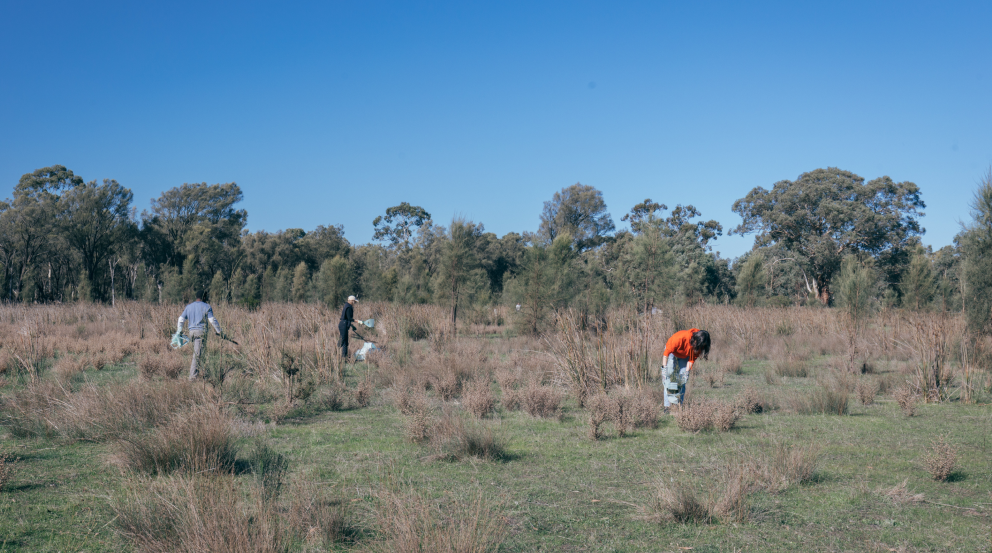When comedian Elizabeth Davie received some misguided and highly gendered ‘advice’ from another financial institution, she turned her exasperation into a hit stand-up show: Super Woman Money Program.
Avoid getting divorced. Reuse tea bags. When Elizabeth Davie opened the email, there they were: 300 ‘tips’ on how women can improve their superannuation savings. While surely well-intentioned, it felt off-the-mark.
“They said to work on your relationship, because divorce is one of the most expensive things you’ll ever do,” Elizabeth says. “That was the tip: just avoid divorce. So simple!”
The list was the genesis of her hit comedy show Super Woman Money Program, which debuted at the Melbourne Fringe in 2017 and went on to dominate the festival circuit, nabbing a Best Comedy Award in Perth in 2018. It definitely resonated with audiences, as they’re still lining up to see it in 2023.
“I find that a lot in my work where I think’, ‘Well, I’m really angry about that. And I don’t know what to do about it,’” Elizabeth says. “So that will become my creative engine.”
.webp)
Elizabeth took the list and did what she often does: sat down to mine it for possible stand-up material. But the scribbled notes quickly morphed into something bigger: a show about financial literacy, institutional sexism, toxic relationships and economic independence.
“[Financial gender inequality] is such a huge, systemic issue. It's not something you can put on the individual that they just should have tried harder,” Elizabeth says. “Even if you do everything ‘right’, as a woman, you can’t get ahead. You could not have kids, and not take time off work, and not take care of anyone, and it’s still so hard.”
According to the Workplace Gender Equality Agency, for every dollar men earn in Australia, women currently earn about 77 cents. And other estimates say Australian women, on average, will earn $1 million less over their lifetimes than men, and retire with $136,000 less in the bank.
The biggest challenge Elizabeth faced was taking all of this stuff and making it, well, funny.
.webp)
“I wanted to tackle it in a way that wasn’t just grim, or really despairing,” Elizabeth says. “That’s what I love about comedy; you can discuss a serious point without bombarding people with horrible statistics. As a comedian, it’s a professional challenge to make superannuation funny.”
Elizabeth brought Super Woman Money Program back earlier this year for a limited run at Melbourne’s Butterfly Club. It’s six years since the show debuted, but after a global pandemic and with many facing financial difficulties, Elizabeth’s stand-up feels more relevant than ever. According to the Australian Institute’s Centre for Future Work, men now have higher average salaries in a staggering 95% of all occupations.
It's one of the reasons you’ll notice a discrepancy on the tickets for Super Woman Money Program. Women get a 13.3% discount – the current gender pay gap. $1 from every ticket also goes to WIRE, a free financial literacy service for women, non-binary and gender diverse people.
Can a single comedy show turn around gendered financial inequality? Probably not. But the way Elizabeth sees things, society needs to talk more about these issues. People need to be engaged in their finances. For Elizabeth, that also included becoming a Bank Australia customer, and knowing that by doing so she’s making a positive contribution to people and the planet.
.webp)
“I’ve had a great professional response to the show,” Elizabeth says. “But the thing that’s made the most difference, to me, is talking to people after each performance. I’ve had people come back and see the show five years later who say that it’s made them re-evaluate how they divide labour or manage money in their relationships. Or people who have taken charge of their finances. That’s been the most important thing for me: to feel like it has really resonated with people.”
You can learn more about Elizabeth here.
.webp)







